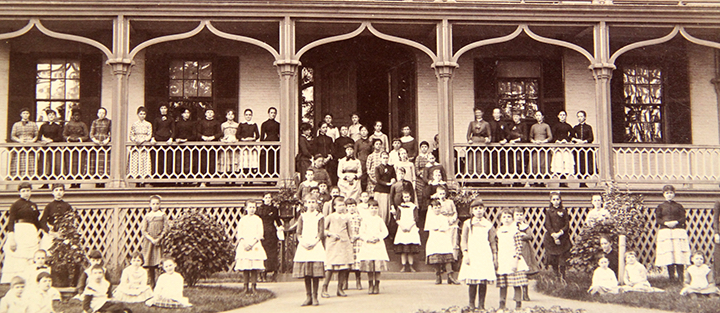This Ardent Flame is now in print, and the magic continues.
This is the second in my Winds of Freedom series of historical mysteries, seeing the approach to the Civil War through the eyes of Vermont teenaged girls. In 1852, to be 14 was to be on the verge of womanhood—and to contemplate big questions, like Abolition, Temperance, and votes for women. Also, if you are Alice Sanborn, to confront the wickedness of a man who beats a horse and probably does the same to humans.
Writing This Ardent Flame became magical for me as Alice and her bosom buddy Caroline, deaf from childhood and newly home to Vermont after years of boarding at the School for the Deaf in Hartford, CT, were riding the train north from Boston. Their mission at that moment was to help provide a merry family distraction around two Black men traveling with Alice’s brothers. The men were freemen, but still at risk even in New England, due to the horrors of the Fugitive Slave Law.
As the girls were “conversing” in their adapted language of American Sign Language, lip reading, and already being well attuned to each other’s thoughts, a woman paused to observe and then to ask them about the exchange of Sign. Fascinated, she assured them she’d be following up on this, then leapt off the train for her connection to Maine.
I suddenly knew who it was, before the girls were aware, of course: Harriet Beecher Stowe, author of Uncle Tom’s Cabin, a woman who would later meet President Abraham Lincoln, who supposedly said to her, “So this is the little woman who started this big war.”

Abashed at my own hubris in walking such an important person into the scene, I emailed one of my consultants: the historian at the American School for the Deaf. “Do you mind,” I asked with shaking typing fingers, “if Harriet Beecher Stowe walks through a scene? Could that be historic?”
The quick reply was basically: “Go for it!” Harriet Beecher Stowe and her sister Catherine, it turned out, had been close friends of Alice Cogswell, who ran the school! And in Alice’s scrap book was (gulp) an unpublished poem by the famed Hartford author of Uncle Tom’s Cabin! Here is the actual response from the school historian:
Alice Cogswell kept a scrap book, which we [were] fortunate to inherit from one of her relatives back in 1936. The scrap book is a collection of poems, letters, and drawings from friends and family members. She certainly did have a connection with the Beecher family because her scrap book includes a poem from Harriet Beecher Stowe and one from Catherine E. Beecher. I have no documentation of the circumstances, but it stands to reason. Both families were prominent in the same Hartford circles, and both women were activists in their own right. Especially Catherine’s crusade for the education of women. I imagine Alice’s education at ASD would have been of particular interest to Catherine.
And that, my friends, is the magic of writing historical mysteries—that every now and then, an unexpected guest walks into the scene, and turns out to uncover a real-life revelation.




No comments:
Post a Comment